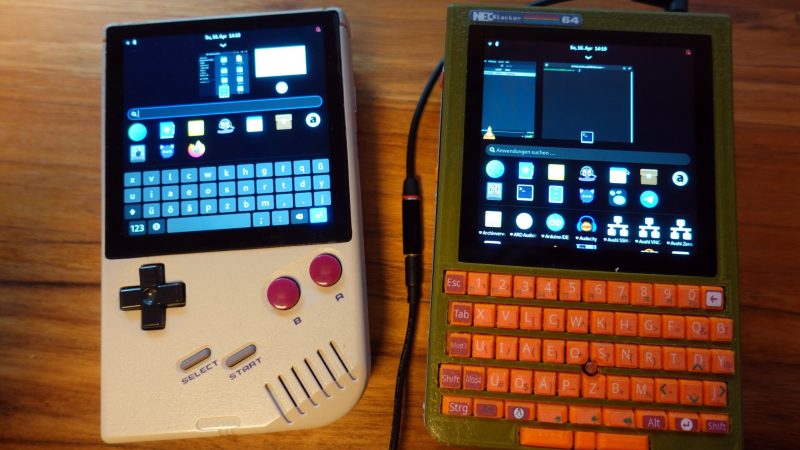Science fiction always promised us pocket computers. These days, we’re spoiled for choice. [Spider Jerusalem] eschewed a simple smartphone or tablet, though, instead building a custom pocket computer of their own design.
Like so many other DIY cyberdecks and handheld computers, this one relies on a Raspberry Pi. In this case, it’s built using a Pi 4 with 8GB of RAM, which offers a snappy experience that wasn’t available on the earliest boards. [Spider] paired it with a nifty 720×720 LCD screen and a full QWERTY button pad, wrapped up in a tidy 3D-printed case. Like any good pocket computer, it’s well-connected, thanks to a 4G LTE cellular data connection.
It might seem to be a build without a purpose in this era, but that’s not necessarily the case. When it comes to running barebones Linux utilities at a real command line, a Raspberry Pi offers some utility that the average smartphone doesn’t have out of the box. It’s a useful tool if you need to interface with a server on the go or do some low-level network diagnostics without carrying a whole laptop around. Video after the break.


















God I wish somebody would sell a kit. Closest commercial thing is the clockworkpi uconsole and who knows when that will actually *finally* ship
The fun in making these is probably designing one yourself from the ground up.
Looks like they’re using PHOSH – so at that point, why not use a PPP with keyboard case? At least you can actually order and receive those in a reasonable time frame?
What is PHOSH and PPP?
PHOSH is a graphical shell for mobile devices. I think PPP is refering to the Pine Phone Plus
Indeed / close; PPP actually stands for PinePhone Pro
soon! @Sword, they just made it through customs paperwork
I didn’t realize until halfway through the video that I couldn’t understand what he was saying. It’s cool, even where there are already hundreds of these projects. I don’t know if the trackpoint is usable, but it seems like a good idea it if is.
I cannot watch the video in browser as the plug-in reports “no compatible media found for the source “. Anybody else have the same issue?
I recognize the Nintendo Gameboy on the left but what is the device on the right? I also don’t understand why there are separate checkboxes for new comments and new posts? Aren’t they the same thing?
This is beautiful. The clockworkpi is beautiful. Now I want both!
where can i find the circuit layout for the keyboard